Ghana, a vibrant West African nation, stands as a beacon of African pride, history, and cultural richness. From its historic role as the first African country to gain independence to its stunning natural landscapes, Ghana’s story is one of resilience, heritage, and progress. Beyond the well-known landmarks and traditions, there are numerous fascinating aspects of Ghana that contribute to the country’s unique identity. Here are 5 of them;
The First African Nation to Gain Independence
Ghana’s most notable achievement is being the first sub-Saharan African country to attain independence from colonial rule. On March 6, 1957, Kwame Nkrumah led Ghana to freedom, setting a precedent for other African nations to follow. This milestone continues to be a source of national pride, with Independence Day celebrated annually with grand festivities at Black Star Square in Accra.

The Bustling Kantamanto Market
Beyond its historical significance, Ghana boasts one of the largest open-air markets in West Africa. The Kantamanto Market in Accra is a bustling hub of commerce where traders sell everything from clothing to electronics and food items. It is a symbol of Ghana’s entrepreneurial spirit, demonstrating the resilience and determination of its people.
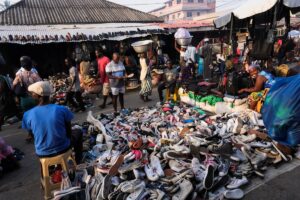
The Iconic Kente Cloth and Golden Stool
Culturally, Ghana is home to the iconic Kente cloth, a colorful and intricately woven fabric that originated from the Ashanti Kingdom. Kente is much more than just a fabric; it is a symbol of African heritage and pride, often worn during significant ceremonies and events. Another key cultural symbol is the Golden Stool of the Ashanti Kingdom, a revered object believed to embody the spirit of the Ashanti people. According to legend, the stool descended from the heavens and remains so sacred that no one, including the Ashanti king, is permitted to sit on it.
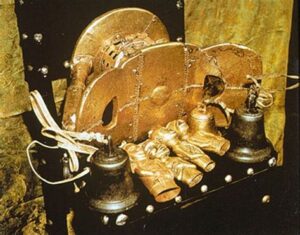
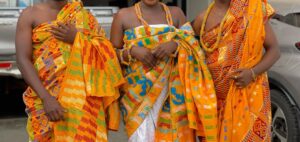
Ghana’s Natural Landmarks
Ghana’s geographical and environmental landscape is equally remarkable. The country is home to Lake Volta, one of the largest artificial lakes in the world by surface area. Created by the Akosombo Dam in the 1960s, the lake plays a crucial role in Ghana’s hydroelectric power generation. Additionally, the breathtaking Wli Waterfalls, the highest waterfall in West Africa, provides an awe-inspiring natural retreat for adventurers and nature enthusiasts alike.
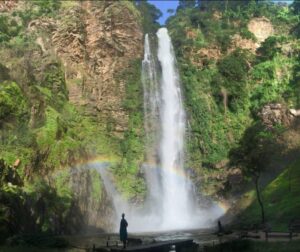
Rich Biodiversity and Wildlife
Ghana’s biodiversity is impressive, featuring national parks such as Mole National Park, which is home to some of Africa’s famous “Big 5” wildlife species, including elephants, leopards, and buffalo. The preservation of these species ensures that Ghana remains an attractive destination for wildlife lovers and eco-tourists.
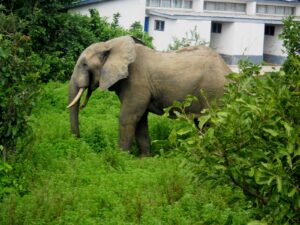
In summary, Ghana’s rich history, cultural heritage, and natural beauty make it a unique and captivating nation. Its journey from the first African country to gain independence to its current status as a thriving nation is a testament to the resilience and spirit of its people.






